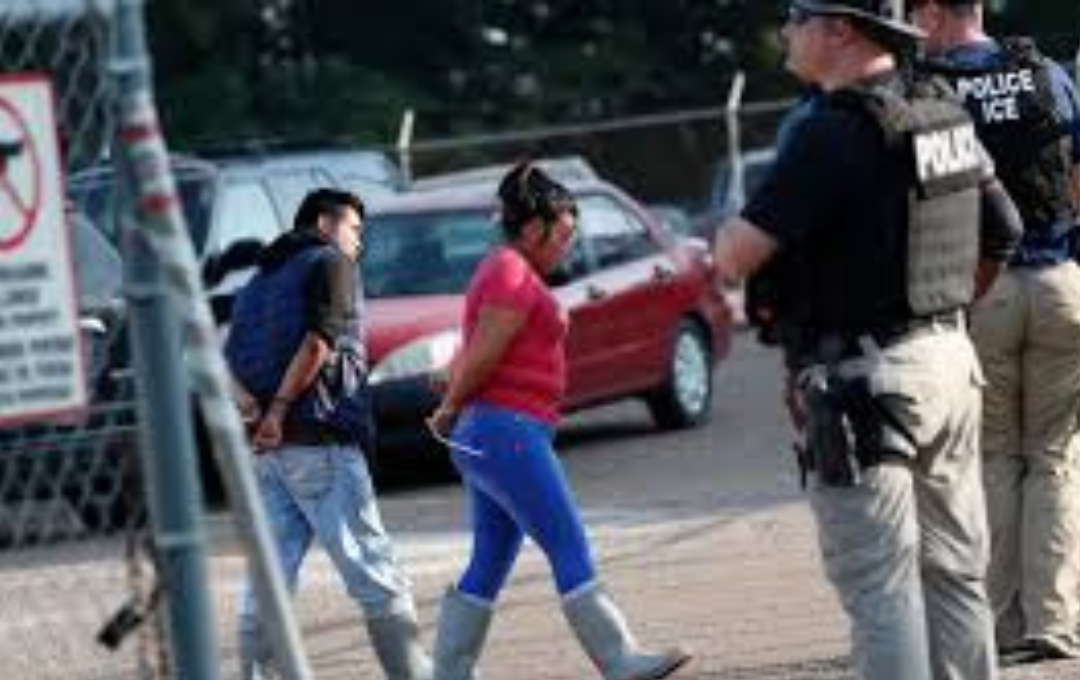ICE Raids in Phoenix and Kern County
Tuesdays are no longer just another workday for many immigrant communities. They’ve become synonymous with fear as Immigration and Customs Enforcement (ICE) ramps up its operations in cities like Phoenix and areas such as Kern County, California. Dubbed “Tuesday Terrors,” these raids target undocumented immigrants, creating ripples of anxiety and disruption. This article explores the nature of ICE raids, why they’re concentrated in Phoenix and Kern County, and how affected communities are responding with courage and resilience.
What Are ICE Raids and Why Tuesdays?
Defining ICE Raids
ICE raids are targeted enforcement actions aimed at detaining individuals without lawful immigration status. Conducted in workplaces, homes, or public areas, these raids are a core element of federal immigration policy.
Why ICE Raids Often Happen on Tuesdays
Historically, ICE prioritizes Tuesdays because it allows the agency to plan operations at the start of the week and maintain momentum through the rest of the workdays. Tuesdays also catch targets off guard after the weekend, especially those working traditional schedules.
The Broader Strategy Behind Tuesday Operations
This pattern isn’t random,it’s a calculated tactic. By starting early in the week, ICE maximizes efficiency in processing and detaining individuals, enabling them to meet operational quotas swiftly.
Phoenix: A Hotspot for ICE Raids
Trends in Recent Phoenix ICE Raids
Phoenix, with its proximity to the U.S. Mexico border and a substantial immigrant population, frequently experiences large-scale ICE operations. Over the past year, neighborhoods and workplaces in this sprawling city have witnessed an uptick in unannounced raids.
Impacts on Local Communities
Families in Phoenix often live in heightened fear, disrupting daily routines like sending children to school or attending medical appointments. Reports indicate that some neighborhoods are entirely transformed as residents become wary of venturing outdoors.
Support Systems and Resistance Movements
Grassroots organizations such as the Puente Human Rights Movement have stepped up, providing real-time alerts about raids, legal assistance, and emotional support for those targeted.
The Kern County Connection
Why Kern County Is a Target
Kern County, home to Bakersfield, is a significant hub for California’s agricultural sector. The region relies heavily on undocumented labor, making it a prime target for ICE raids aimed at workplaces such as farms and packing facilities.
ICE Raids in Agricultural and Rural Settings
These raids disrupt not only families but also the local economy. Farmers frequently report worker shortages in the aftermath of ICE operations, leading to financial strain and production delays.
Stories of Resilience Amidst Fear
Residents of Kern County are finding ways to stand strong. For example, communities often collaborate with local non-profits to provide resources, transportation, and legal guidance to affected families.
Legal Rights: How to Respond to ICE Raids
Knowing Your Rights During a Raid
Immigrants, regardless of status, have constitutional rights:
- The right to remain silent.
- The right to refuse entry without a signed judicial warrant.
- The right to contact legal counsel.
Steps Families Can Take to Prepare
- Documentation: Keep critical documents like IDs and legal papers in a secure but accessible location.
- Legal Contacts: Establish connections with immigration lawyers or community legal aid groups.
- Emergency Plans: Have a strategy for childcare, finances, and communication in the event of a detention.
How ICE Raids Impact Families and Communities
The Emotional and Social Toll
The trauma caused by sudden separations and the stigma surrounding deportation have long-lasting effects on families, especially children. Schools often report declining attendance among immigrant populations.
Economic Consequences of Workplace Raids
Raids disrupt local economies in Kern County and Phoenix, where industries like agriculture and construction depend on immigrant labor. Employers lose workers, while families lose critical income sources.
Strategies for Communities to Resist and Heal
Organizing Support Networks
From Phoenix to Kern County, grassroots movements provide a safety net for vulnerable populations. Churches, non-profits, and local leaders collaborate to offer shelter, food, and emotional support.
Local Advocacy Efforts
Organizations like the ACLU in Kern County and the Florence Immigrant & Refugee Rights Project in Arizona actively challenge unjust enforcement actions, advocating for humane immigration reform.
Conclusion(ICE Raids in Phoenix and Kern County)
Tuesday may be a dreaded day for many, but communities in Phoenix and Kern County are fighting back with strength and solidarity. ICE raids disrupt lives, but they also ignite resilience, activism, and a renewed call for a more compassionate immigration policy. By organizing, staying informed, and demanding change, these communities prove that even in the face of fear, hope endures.
FAQs
1. Why are ICE raids more common on Tuesdays?
Tuesdays allow ICE to begin the week with maximum operational efficiency and catch individuals off guard after the weekend.
2. What makes Phoenix and Kern County hotspots for these operations?
Phoenix’s proximity to the border and Kern County’s reliance on immigrant labor in agriculture make them primary targets for ICE raids.
3. How can families protect themselves during ICE raids?
Families should know their rights, prepare critical documents, and have legal and emergency plans in place.
4. What organizations help immigrants in Phoenix and Kern County?
Groups like Puente Human Rights Movement in Phoenix and the United Farm Workers in Kern County offer legal and emotional support.
5. Are there humane alternatives to current ICE policies?
Advocates suggest alternatives like supervised release programs and comprehensive immigration reform to prioritize family unity and justice.

Where to download Jili7 app is key. Found a safe source at jili7download. Always double-check the source before downloading!
I don’t think the title of your article matches the content lol. Just kidding, mainly because I had some doubts after reading the article. https://accounts.binance.com/de-CH/register-person?ref=W0BCQMF1